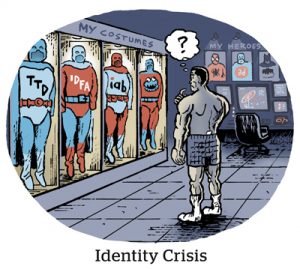Welcome to AdExchanger Talks, a podcast focused on data-driven marketing. Subscribe here.
CEO Dave Finocchio started Bleacher Report along with his three cofounders in 2005 after deciding most sports media wasn’t connecting with young people.
“There was a generation of sports fans that have been stuck with their dad’s and grandfather’s sports voice,” Finocchio says on the latest episode of AdExchanger Talks. “A lot of the content that existed then was very wordy, very tied to things that happened during games. It wasn’t a reflection of how my generation was talking about sports.”
With minimal funds, they built an audience and a business using a crowd-sourced content model. They succeeded. Today BR is among the top sports-focused websites in the world, with some 40 million users, according to comScore. Along the way it pivoted away from amateur content and now has about 500 employees focused on writing, producing, distributing and of course monetizing its sports coverage.
The company has evolved on the advertising side too.
Initially, BR was a “classic display advertising business” in Finocchio’s words. “We aggregated millions of eyeballs onto a website and app and we sold different forms of banners and pre-roll,” he said.
Today its efforts are far more aligned with advertiser objectives. “Everything that we do internally and all the infrastructure we build around advertising is geared towards actually driving results for our partners,” he said. “We’re not trying to just run media and get to the next campaign. We need partnerships.”
Also in this episode: BR’s programmatic philosophy, how people watch sports now and why Finocchio came back to run Bleacher.
This episode of AdExchanger Talks is sponsored by Nucleus.
















